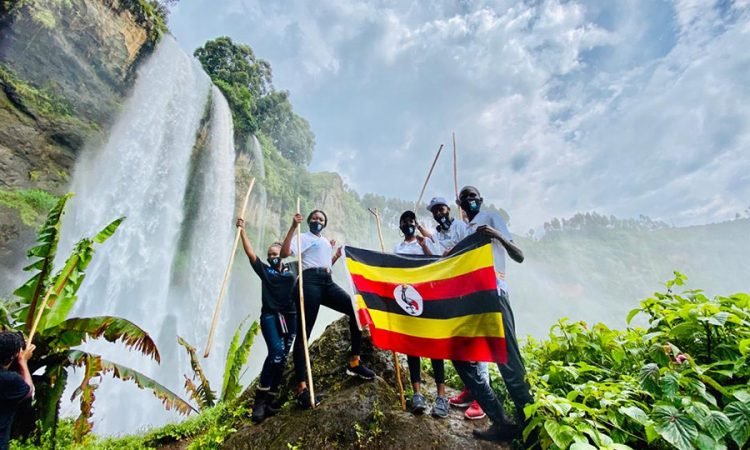
Our Strength Is in Our Stories: Embracing Uganda’s Rich Cultural Legacy
There is something quietly powerful about a story well told—especially when it’s our own. Uganda is a country stitched together by a multitude of ethnicities, traditions, and oral histories. Among them, the Baganda people have carried a deep reservoir of knowledge, pride, and identity passed down through generations—not just in books or stone, but in stories.
Yet, walk down the streets of Kampala or scroll through social media, and you’ll see something troubling. We have adopted narratives that are not ours, mimicking lifestyles, values, and cultural expressions alien to our soil. As we chase what’s “modern,” we often turn our backs on the ancestral wisdom that built kingdoms, guided communities, and kept peace.
If we forget where we come from, we lose the power to decide where we are going.
Mukiibi Hamza Katende
Our strength is in our stories. These are not just tales. They are blueprints for resilience, courage, innovation, and unity. It’s time we open that old chest of forgotten wisdom and use it to light the way forward.
The Power of Baganda Heritage
The Baganda kingdom, one of Africa’s oldest and most structured monarchies, is a testament to the power of culture. At its peak, Buganda wasn’t just a political entity—it was a society governed by rich traditions of law (Amateeka), family structure, conflict resolution, and spirituality.

The Kabaka (king) was both a political and spiritual leader. His word carried the weight of history. Clan systems, with over 50 clans among the Baganda, ensured that no one was rootless. Every child knew their totem (empisa), their role, and how to behave within and outside their community.
Compare that to today’s disconnected youth, many of whom cannot name their clan or explain what ekisakate (initiation camps) were. We are raising a generation without memory. And when memory dies, identity fades.
Cultural Abandonment
Why have we abandoned what was once our compass?
- Colonial Disruption: Missionaries and colonial systems dismissed our beliefs as pagan and our customs as backward. In replacing indigenous systems with Western ones, we were told our ways were not good enough.
- Urbanization: As people move to cities, communal life is lost. Elders, once the custodians of stories, are left behind in villages.
- Western Influence: Music, movies, and fashion imported from abroad have created a narrative that being Ugandan is somehow inadequate or embarrassing.
These forces have led us to adopt stories that aren’t ours. But here’s the truth—no nation thrives by imitating others. Japan embraced modernity while preserving Shinto and samurai values. Rwanda is forging a future by anchoring on Agaciro—dignity. We too can evolve without erasing our roots.

The Stories We Need to Tell Again
Uganda has more than 50 tribes, each with a treasure trove of proverbs, myths, rituals, and customs that offer timeless lessons.
- From the Baganda, we learn respect, order, and collective responsibility. Stories of Kintu and Nambi teach harmony with nature and spiritual balance.
- From the Banyankole, we learn pastoral resilience and wealth sharing systems like ekyaro.
- From the Acholi, stories of bravery and folklore heroes like Labong and Gipir shape a culture of strength and family ties.
- From the Basoga, traditional dances like Tamenhaibuga teach unity, rhythm, and joy in collective expression.
These stories are not obsolete. They are applicable today—in leadership, parenting, community work, and even business. They teach us how to lead with humility, respect elders, settle disputes without violence, and value the environment.
Until the lion learns how to write, every story will glorify the hunter
Chinua Achebe
How We Can Reclaim Our Stories
Reclaiming our stories doesn’t mean rejecting modernity. It means merging the wisdom of the past with the demands of today.
- Every Ugandan language is a code of identity. Naming children with meaningful indigenous names keeps the story going. Language shapes thought. If we lose Luganda, Lusoga, or Luo—we lose worldview.
- Record grandparents telling stories. Share them on YouTube, TikTok, or blogs. These stories should not die in the villages.
- Why not teach Ugandan folktales in literature classes? Or introduce cultural knowledge as a subject? Children must see themselves in the curriculum.
- Hold clan days, traditional food fairs, and dress-up events in towns. Let Kampala not be the graveyard of culture.
- Authors, filmmakers, and artists preserving our heritage should be celebrated and funded. Their work is not just entertainment—it’s preservation.

We cannot build a nation by pretending we began at independence. Our story is deeper than the ink on colonial treaties. It is in the ebikadde (old tales), in amakula (wisdom), and in the sacred rhythm of engoma (drums).
Imagine a Uganda where:
- Leaders quote traditional proverbs in policy debates.
- Entrepreneurs innovate while drawing on indigenous systems of trade and barter.
- Youth wear traditional attire with pride, not shame.
- Schools nurture future citizens using homegrown values.
This is not fantasy. It begins with you. Share a story from your clan. Teach a child a proverb. Wear your gomesi or kanzu without apology. Build your brand with your roots.
Let us remember. Let us rebuild. Let us tell our stories.



Leave a Comment